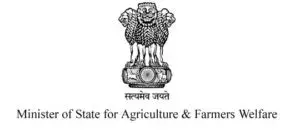India: Finance Ministry to ease Debt recovery
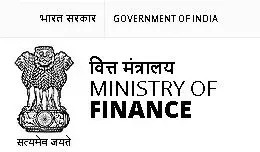 The Government works towards easing the debt recovery procedure.
The Government works towards easing the debt recovery procedure.
India: Caveat by Walmart
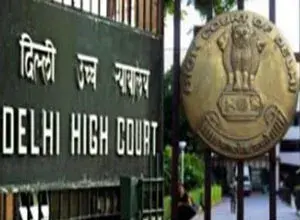 In furtherance to its acquisition of Flipkart, Walmart turns extra cautious and files caveat in order to prevent any legal hitches against the same.
In furtherance to its acquisition of Flipkart, Walmart turns extra cautious and files caveat in order to prevent any legal hitches against the same.
India: NCLT seeks clarity on the action of ED
 The Allahabad NCLT seeks clarity against the attachment made by ED in Rotomac case.
The Allahabad NCLT seeks clarity against the attachment made by ED in Rotomac case.
India: Infosys loses arbitral battle to former employee
 Infosys has been ordered by an Arbitral Tribunal to pay the dues with interest to its former employee in furtherance to the severance agreement between the parties.
Infosys has been ordered by an Arbitral Tribunal to pay the dues with interest to its former employee in furtherance to the severance agreement between the parties.
India: Finance Ministry to ease Debt recovery
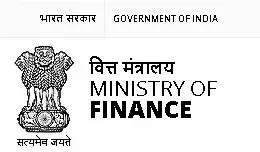
Source: www.finmin.nic.in
With the increasing growth and development witnessed in recent times, India is becoming an industrious country, reaching greater heights of business operations. Rise in the aspirations of the entrepreneurs[1] often leads to raising of capital in order to fulfil the demands being made to them. The country has been facing the threat posed by the bad debts or non-performing assets (hereinafter referred to as “NPA”) which are loans or advances for which the payment remains outstanding.
Role of the Finance Ministry
One of the most vital ministries of the country, responsible for the regulation and management of the economy of the country is the Ministry of Finance (hereinafter referred to as the “Ministry”). The Ministry concerns itself with taxation, financial legislation, financial institutions, capital markets, centre and state finances, and the Union Budget.
With the view to help the financial institutions to recover their bad debts quickly and efficiently, the Government of India has taken the following steps :
- It has constituted Debts Recovery Tribunals (hereinafter referred to as the “DRT”) and Debts Recovery Appellate Tribunals (hereinafter referred to as the “DRAT”) across the country.
- In order to initiate the recovery procedure, lenders can take action under the provisions of the Securitisation and Reconstruction of Financial Assets and Enforcement of Security Interest Act, 2002 (hereinafter referred to as “SARFAESI Act”).
- Pursuant to the rules of Recovery of Debts due to Banks and Financial Institutions Act, 1993, the Government has decided to double pecuniary limit to INR 2,000,000 [USD 27818 approx.] for filing applications with DRT, thus, enabling them to focus on high-value matters.
- Computerisation of records of cases being handled across all DRTs and DRATs Appellate Tribunals has commenced using e-DRT software, which includes e-filing, e-payment of fees, uploading of orders and viewing case status thereby facilitating the parties to the debt recovery proceedings.
- The Government will also help banks set up a common platform for e-auction of attached properties which will have all details including reserve price.
Working towards the progressive approach of minimizing the burden of bad loans on the lenders, the Government is making continuous efforts in the form of simplified judicial systems and digitalization.
_________________
India: Caveat by Walmart
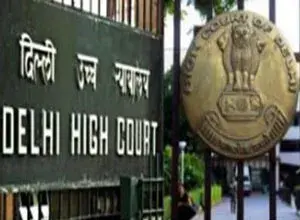
Source: www.delhihighcourt.nic.in
In the modern world, changes take place every moment and business houses face difficulties of various sorts. This often leads to corporate restructuring by recourse to options such as mergers and acquisitions. The bigger sharks in the industry try to engulf the smaller entities creating a huge impact in the market.
India is witnessing number of takeovers. A recent one being the acquisition of Flipkart by Walmart via a $16 billion deal and acquisition of 77% stakes on August 18, 2018. The said transaction has been approved by the Competition Commission of India, being in conformity with the provisions of the Competition Act, 2002.
However, this takeover has been opposed by the Confederation of All India Traders (hereinafter referred to as “CAIT”) and the Swadeshi Jagran Manch (hereinafter referred to as “SJM”). The issues being raised include violation of the Foreign Direct Investment policies and offering of heavy discounts to customers.
In order to prevent any legal action taken by CAIT or SJM against Walmart, the Big Shark has taken legal recourse and filed a caveat in the Delhi High Court. Filing of a caveat, a latin term which means ‘let a person beware’, ensures that the Court shall accord an opportunity of fair hearing, to the filing party, before deciding on the matter brought before the Court. Under the Indian legal regime, a caveat can be filed in accordance with the provisions of Section 148A of Civil Procedure Code, 1908.
The filing of the caveat by Walmart is indicative of its cautious approach against any probable legal action that may be initiated against it.
India: NCLT seeks clarity on the action of ED

Source:
www.nclt.gov.in
In the market of changing scenarios, the companies are faced by numerous challenges on the business front. At times they may be confronted with such financial crisis that it is no longer practical to continue the business operations and deal with the mounting losses. In such situations, the companies may be referred for insolvency resolution.
Guiding light
The Government introduced the Insolvency and Bankruptcy Code, 2016 (hereinafter referred to as the “IBC”) with the aim to making availability of credit more transparent by maximizing the value of the assets in a time-bound manner. IBC restores the faith in the judicial mechanism and prevents the unscrupulous debtors from escaping the repayment of their debts by taking recourse to insolvency.
Clash between penal provisions and IBC
The liquidator appointed for the insolvency resolution of Rotomac Global Private Limited (hereinafter referred to as “Rotomac”) filed an application to the Allahabad Bench of National Company Law Tribunal (hereinafter referred to as “NCLT”) seeking clarity on the validity of attachment of Rotomac’s properties by the Enforcement Directorate (hereinafter referred to as “ED”). The NCLT has referred the matter for the opinion of the Central Government
[2]
The ED had ordered for provisional attachment of the assets under the provisions of the Prevention of Money Laundering Act, 2002 vide order dated May 28. 2018. The said properties are also a part of the liquidation process. Thus, the liquidator appointed sought a direction from the NCLT for the detachment and restoration of the same.
As per the liquidator, by the said attachment of assets the ED violated the provisions of Section 33(5) of IBC whereby once a liquidation order has been passed, no suit or other legal proceeding shall be instituted by or against the corporate debtor. It has been contended that the attachment also contravenes Section 238 which states that IBC shall have overriding effect to anything inconsistent therewith contained in any other law for the time being in force.
Recent approach
NCLT ordered ED of Delhi Zone to hand over to the liquidator, the possession of attached properties of the corporate debtor – REI Agro, one of the former renowned rice processing unit and now under liquidation.[3] In this first of its kind order, NCLT settled that the control and disposal of the assets would be done by the liquidator appointed under the IBC thus allowing it preference against the authorities handling criminal cases.
Considering the objective of ensuring an efficient mechanism for the resolution of insolvency proceedings initiated against a company without jeopardising the rights of the bona-fide creditors, the IBC has been introduced by the Government.
While the enforcing judicial system- NCLT has accorded an overriding effect to the IBC against the attachment of the assets under penal proceedings, NCLT Allahabad has however referred the issue to the Central Government for taking the final decision.
_________________________
India: Infosys loses arbitral battle to former employee

Source: www.icaindia.co.in
Guiding light
In India, law promotes the resolution of disputes between the parties through alternate dispute redressal mechanisms. The arbitration and conciliation proceedings are regulated under the provisions of the Arbitration and Conciliation Act, 2015 (hereinafter referred to as the “Act”). Arbitration provides procedural flexibility, saves valuable time and money while avoiding the stress of a conventional trial.
Infosys lost arbitral battle against former employee
The former Chief Financial Officer (hereinafter referred to as the “CFO”) of one of the leading information technology companies, Infosys Limited (hereinafter referred to as “Infosys” or “the company”), took recourse to arbitration by exercising the said clause of the severance agreement between himself and the company in April 2017 in order to resolve the dispute pertaining to the halted pay-outs.[4]
A severance agreement enumerates the rights and obligations of the employer and the employee in the event of termination of such relation between the parties. At the time of execution of the aforesaid agreement between the company and its CFO, a sum of INR 173,800,000 (USD 2416405 approx.) was agreed to be paid to the ex-employee in lieu of severance pay, salary and other benefits. [5]
In furtherance of the dues, the company paid INR 52,000,000 (USD 722975 approx.). However, discrepancies arose regarding the decision to make severance payments, which resulted in halting the further payments. The founders of the company raised the issues that the pay-out had been made without adequate disclosures and financial loss was suffered by the company when the ex-CFO deleted vital content from the company issued laptop.
Arbitral Tribunal of the former Supreme Court judge Mr. R.V. Raveendran acknowledged that the company had a bona-fide dispute, however, rejected its claim seeking refund of the payment already made. Further the Tribunal ordered the company to pay its former employee INR 135,800,000 (USD 1888077 approx.), including INR 121, 800,000 (USD 1693430 approx.) in severance and INR 14,000,000 (USD 194647 approx.) in interest.
The arbitral awards issued are generally final and binding on the parties as per Section 35 of the Act and can be enforced as the decree of the Court under the provisions of Section 36 of the Act. However, the same may be subject to challenge on grounds such as incapacity of the party, arbitration agreement is not valid, improper appointment of Arbitrator, issue not within the scope of arbitration agreement, etc.
With the ease and facilitation offered by arbitration, more and more people are increasingly taking recourse to such measures in order to settle their disputes
__________________


